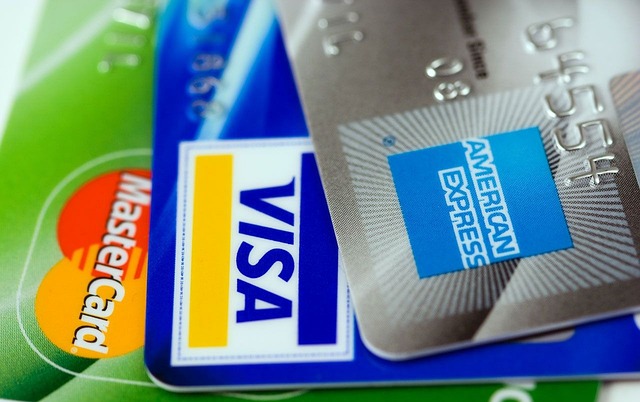Introduction to Christmas Scams
Beware of Christmas Scams. The Christmas season is upon us. Unfortunately, that also means that Christmas scams are rising. And cybercriminals seek to steal money, personal information, and identities from online shoppers.
Consumers have lost over $500 million due to fraud since the pandemic began in 2020. With online purchases comprising the majority of reported instances.
Last year was unprecedented for online holiday purchases, with consumers spending a record-breaking $188 billion. Retailers can expect to see fully loaded digital shopping carts again as e-commerce thrives this holiday season. Also, with that in mind, we must be prepared to outsmart scammers.
Read on to learn about the most common Christmas scams and how to avoid falling victim to theft.
What is a Christmas Scam?
Beware of Christmas Scams. Christmas scams refer to fraudulent activities that occur when criminals prey upon unwary shoppers during the holiday season. So then, the goal of a Christmas scam is to take hold of sensitive personal information. Such as credit card details or identity documents.
Once thieves obtain your private information, they can make fraudulent online transactions with your stolen credit card information. In addition, attempt to access your bank accounts, or commit identity theft. Hence, Christmas is a busy time of year, making it the ideal season for con artists to prey on unsuspecting consumers.
Types of Christmas Scams You Need to Know About?
Beware of Christmas Scams. Online Christmas scams appear in several different forms. Here are the most pervasive scams to watch out for this year:
- The Look-Alike Website
- The Gift-Giving Pyramid Scheme
- The Fake Job Posting
- The Grandparent Scam
- The Gift Card Scam
- The Puppy Scam
- The Travel Phishing Scam
1. The Fake Website Scam
Beware of Christmas Scams. We’ve all made typos when entering a website address. Typically, a mistyped address leads to a blank webpage or sometimes a simple error message. But these spelling mistakes can lead you to a scam website. And where scammers have set up look-alike pages of popular online stores that use similar (but incorrect) website URLs.
Look-alike holiday scams use professional web designs to closely mirror the appearance and feel of a standard retailer’s site. But are often riddled with errors like typos, suspicious URLs, or incorrect customer service phone numbers. Since these sites are almost exact copies of real ones, it can be challenging to recognize this type of online fraud.
An Example
In 2020, Kristi Pimentel was swamped by angry emails from people claiming she had robbed them. As it turns out, a scammer had swiped photos from her site where she was holding beautiful sea glass Christmas trees that she handcrafts and sells on her legitimate Etsy site. The scammer had created a fake site and ran ads on Facebook, tricking unsuspecting victims into sharing their details with a fake “online store.”
Fake charities (like veterans charity scams) are another type of scam to watch out for during the holidays. Con artists will create fake replica sites to copy the appearance of a legitimate charity’s website, and leverage fake social media campaigns to trick people with generous hearts into making “donations”. Unfortunately, those donations will go directly into the pockets of cybercriminals. Soon after, the fake charity website will disappear.
2. The Gift-Giving Pyramid Scheme
Beware of Christmas Scams. Buy one gift and receive several in return? It sounds enticing. However, gift-trading Christmas scams are actually illegal pyramid schemes.
The Better Business Bureau (BBB) labels these gift-giving schemes as “Secret Sister” exchanges. The thief sends you phishing emails, e-cards, or social media messages with an attractive invitation: send just one gift and receive up to 36 gifts back.
The scam comes alive when you realize that you won’t actually receive any gifts, and your personal information is now in the hands of a criminal.
3. The Fake Job Posting
Beware of Christmas Scams. Scammers take advantage of eager job searchers by creating fake employment postings to steal money and personal information from job applicants.
In this scam, cybercriminals ask for your private details upfront, and even request that you pay for job training or equipment materials before “starting the job.”
A fake ad for airport shuttle drivers was spotted on a Facebook group. The post urged the group’s 5,000 members to apply by answering some generic questions via email. People thought they were being given a chance to land jobs at Denver International Airport—but only if they shared their personal documents.
4. The Grandparent Scam
Beware of Christmas Scams. Seniors are at greater risk of falling prey to Christmas scams around the holidays. The Federal Trade Commission (FTC) reported that consumers who were 80 years and older lost more money to fraud on average ($1,600) when compared to any other age group.
Criminals often target a grandparent with this cruel scam, in which they impersonate a grandchild or other young family member requesting money to help out with an urgent situation. Elderly victims may wire payments to a fake account, only to discover that they’ve been tricked.
5. The Gift Card Scam
Beware of Christmas Scams. With gift card scams, an online vendor requests that you purchase gift cards to pay for your purchase instead of using a credit card or payment platform like PayPal. The FTC states that one in four fraud victims have paid with a gift card, making it a popular means for scammers to steal money from consumers.
For example, let’s say you find a great Christmas gift on eBay or Facebook Marketplace. Rather than paying with a credit card through a secure platform, the seller requests that you pay for your purchase with a gift card instead. Gift cards are untrackable, allowing the scammer to walk away without a trace.
Related: What Are Steam Card Scams? How Can You Avoid Them? →
6. The Puppy Scam
Beware of Christmas Scams. Every Christmas, thousands of children get new puppies. Sadly, many families will end up disappointed when they realize a puppy scam has fooled them.
Social media ads offering puppies for sale at discounted prices are a red flag, as many sellers ask for money upfront to cover the cost of shipping, insurance, and vaccinations.
Jo Standridge learned about this trick the hard way. After wiring $400 to a website via Western Union, the website vanished. She never heard from the seller again, while losing both the puppy and her money.
7. The Travel Phishing Scam
Beware of Christmas Scams. Many people plan their next big adventure or vacation abroad during Christmas. Great deals are available, especially during Black Friday or Cyber Monday, enticing eager vacationers to take advantage of bargain pricing during the low travel season.
However, you should be wary of any offers that seem too good to be true. Con artists will use social engineering attacks like phishing scams to create highly appealing “deals” through fake emails or text messages, and try to con people into revealing their sensitive information.
Related: 10 Airbnb Scams That Will Ruin Your Next Vacation →
How Can You Avoid Christmas Scams?
Christmas is the peak season for online shoppers, which is a golden opportunity for criminals to hide behind fake accounts and identities. Use the following four tips to defend yourself against Christmas scams and shop online safely this season:
1. Proper Internet Security
Good security on your devices can prevent fraud. It’s in your best interest to install and activate antivirus software on your browsing device and a virtual private network (VPN) that defends against malware.
Most reputable sites will utilize proper web security protocols such as SSL encryption. You can confirm this security layer by seeing HTTPS (instead of HTTP) in your browser and the green padlock icon next to the website’s URL address.
95% of sites found on Google use an HTTPS address since it’s easy to implement and important for protecting your data. Fake websites often lack security certificates, making intercepting your connection and accessing your private information easier.
2. Only Purchase From Known Retailers
Reputable, big-box retailers such as Amazon take website security seriously. As such, their brand must always remain reputable and trustworthy. To maintain a high degree of consumer trust, their websites are typically free of typos, odd design quirks, dark patterns, and other flaws that would detract from the shopping experience.
If you notice something strange, it’s best to double-check the website address spelling to confirm you’re using the real one. When exploring lesser-known sites, read customer feedback on third-party review sites like Trustpilot to determine the website’s legitimacy. You can also test the URL on Scam Adviser for added peace of mind.
Some fraudsters will take advantage of our trust in Amazon to run scams. If you get an unordered Amazon package, you might be the victim of a brushing scam.
💡 Related: 10 Amazon Gift Card Scams You Need to Avoid →
3. Use a Secure Password Manager
Most people use the same password across several online accounts. While this is convenient, it exposes you to identity theft.
If a hacker can obtain just one password, they’ll have access to all your other online information, such as your email and online banking details. Try a digital security solution like Aura to manage several complex passwords with one master password, keeping your most important accounts separate and secure. (RECOMMENDED, by Ian)
4. Use Your Credit Card, Not Your Debit Card
If you realize you’ve been scammed, it might feel like you have no options for recourse. But it’s essential to take action to prevent identity theft, and you might be able to recover your stolen funds in some instances.
Here are the first steps to take if you’re a victim of a Christmas scam:
1, Cut off contact immediately: Do not continue communicating with scammers, as you risk exposing further sensitive information.
2, Alert family and friends: Tell your contacts not to respond to any suspicious messages requesting money or information.
3. Cancel all future payments: If the cybercriminal has access to your bank account or other financial information, contact your financial institution and cancel any charges immediately. This should help protect you from other types of financial fraud.
4. Freeze your credit. A credit freeze (or credit lock) stops fraudsters from opening new accounts or taking out loans in your name. Contact each of the major credit bureaus to request a credit freeze.
5. Change your usernames & passwords: if you’ve been hacked or phished, you’ll need to change your usernames and passwords immediately.
Also
6. Regularly check your credit report and bank statements. Scammers are almost always after your financial accounts. Check for the warning signs of identity theft — such as strange charges on your bank statement or accounts you don’t recognize. An identity theft protection service like Aura can monitor your credit and statements for you and alert you to any signs of fraud.
7. Consider signing up for identity theft protection (optional). Aura’s top-rated identity theft protection monitors all of your most sensitive personal information, online accounts, and finances for signs of fraud. If a scammer tries to access your accounts or finances, Aura can help you take action before it’s too late. Try Aura’s 14-day free trial for immediate protection while you’re most vulnerable.
8. Once you complete those steps, you should file a police report — more especially if you recognize any significant warning signs of identity theft.
Also
How Do You Report Christmas Scams?
The faster you report the scam, the better the odds are that you can catch the thief and restore your funds or identity. If you are a victim of a scam, immediately report the incident to the following entities:
- Your bank or credit card company: Cancel any bank payments and request a chargeback with your credit card lender.
- The retailer: Inform the online store of the scam so they can investigate the issue and prevent others from becoming victims of fraud.
- The platform: If the scam involves an ad or message on social media, alert the company. They can take down the ad or illegal pop-up and investigate the scammer’s account.
- The police: Provide any evidence of the theft to local law enforcement and the Internet Crime Complaint Center (ICCC) at ic3.gov. Formal documentation from the police or the ICCC will further help your financial institution combat scams.
Scammers Are Smart, You Have To Be Smarter
Unfortunately, fraudsters are scheming to profit from our online shopping activities illegally. Christmas is a prime time season for scamming.
Keep yourself safe this holiday season by purchasing from well-known, trustworthy brands. So then, always do your due diligence if you come across what looks like a “sweet deal” from a smaller retailer.
Look for plenty of positive reviews, use your credit card instead of your debit card, and ensure you’ve enabled antivirus security.
Together, we can avoid Christmas scams and report suspicious activities, helping everyone enjoy the holiday spirit and shop with peace of mind.
In Conclusion
Remember if seems too good to be true, it is probably not true, and you will be the loser. Look for the signs that it is fake, and check the email address, for the signs, it is not what it says. Be inquisitive do not just accept things and get into the habit of looking for those telltale signs that can indicate it is not quite right. Stay safe online.
Important Note *
Remember that everyone is different, and it is ultimately YOUR RESPONSIBILITY to find what your body responds to. So please do your due diligence before trying anything new, including getting Medical Advice to ensure your safety and peace of mind.
Connect with me and leave a comment or two on my social media.












